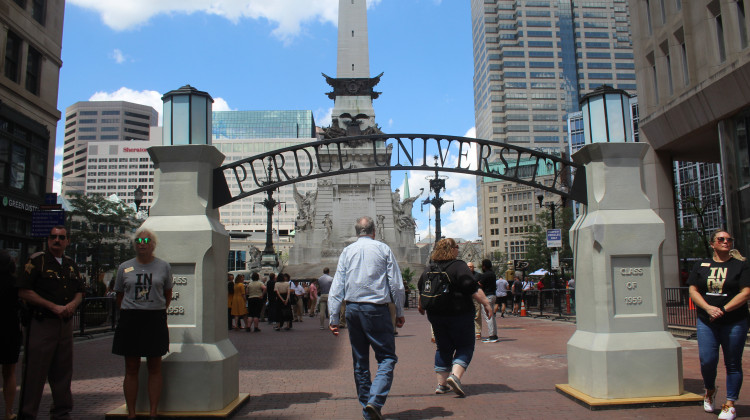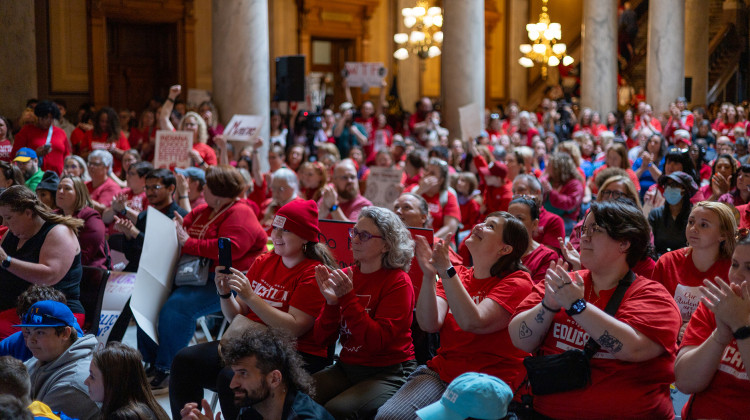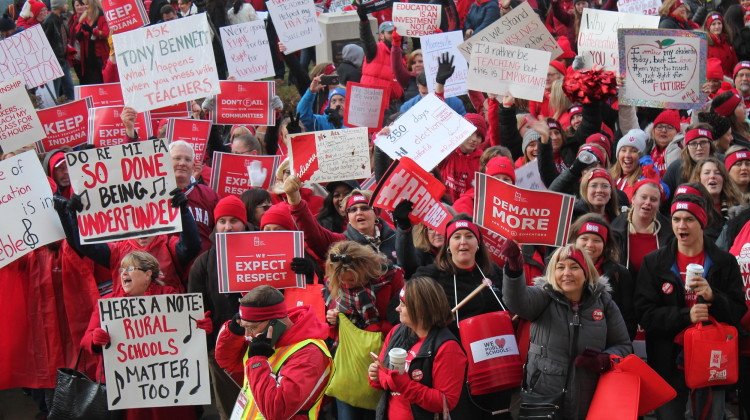This year's presidential campaign is unlike any other, and so far, that includes the debates between candidates. And it's prompting more questions and conversations in classrooms everywhere, including in Indiana.
Vigo County government and politics teacher Jim Kendall apologized to his students after assigning them to watch the first presidential debate – he says it didn't move the needle much on civic discussion.
But Kendall says so far his students don't seem as passionate about the election compared to past years.
"And I kind of attribute it to the fact a lot of my students don't have a fire one way or the other for or against the two candidates," he said.
It's not a bad thing; he said it's actually allowed students to have more conversations about strategy and policy. And while they might not feel excited about one candidate more than the other, he says students have shown an unexpected interest in one topic: absentee or mail-in voting.

During class the day after the vice presidential debate, some of Kendall's students observed that U.S. Sen. Kamala Harris and current Vice President Mike Pence spent time attacking the other candidate's presidential nominee – at times, instead of answering questions.
Students also pointed out how the flow of discussion between the two candidates and moderator stood in stark contrast with the first presidential debate. They also briefly talked about the infamous debate fly and how it dominated much of the conversation on social media.
But students in other parts of the state have clearer preferences among candidates, and that changes the conversation.
READ MORE: Can I Vote By Mail? Here's What You Need To Know For Indiana's Elections

Join the conversation and sign up for the Indiana 2020 Two-Way. Text "elections" to 73224. Your comments and questions in response to our weekly text help us find the answers you need on COVID-19 and the 2020 election.
Amanda Cowgill teaches world history at the Ben Davis Ninth Grade Center in Indianapolis. She says many of her students seem to share similar opinions. But she's been careful not to share hers so students can build their own opinions – not just follow what their teachers or others say.
"I like to think that most of us really want kids to think for themselves and not just parrot back what's around them, whether it's a parent or a teacher in the school," she said.
Cowgill says she asks questions to get students thinking about specific issues from different perspectives, and sometimes plays "devil's advocate" during class discussions. She and Kendall both say they ask students to think about why candidates use different strategies, including those seen during the first presidential debate, and analyze the different tools and political avenues campaigns and candidates have taken.
COVID-19 has made planning lessons even more challenging for teachers than usual. But Cowgill says, she's hoping to focus more discussion on the candidates' platforms and policies in the coming weeks.
But Kendall and Cowgill also point out the importance of down ballot races, and say even though the race for president is interesting and important, local races have a more immediate impact on people's day to day living.
Contact reporter Jeanie at jlindsa@iu.edu or follow her on Twitter at @jeanjeanielindz.
 DONATE
DONATE







 Support WFYI. We can't do it without you.
Support WFYI. We can't do it without you.